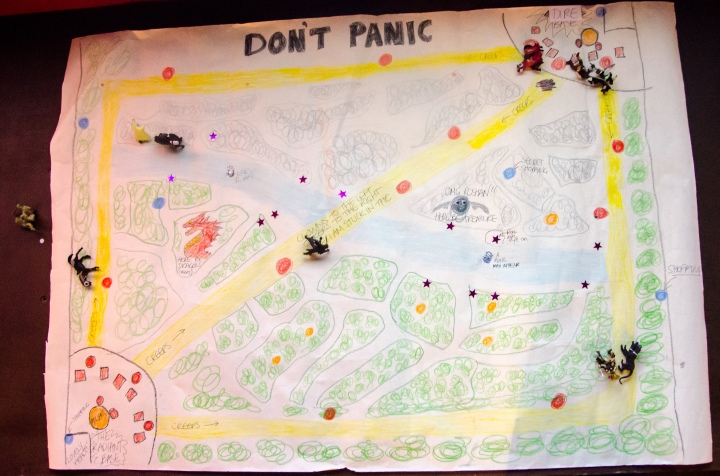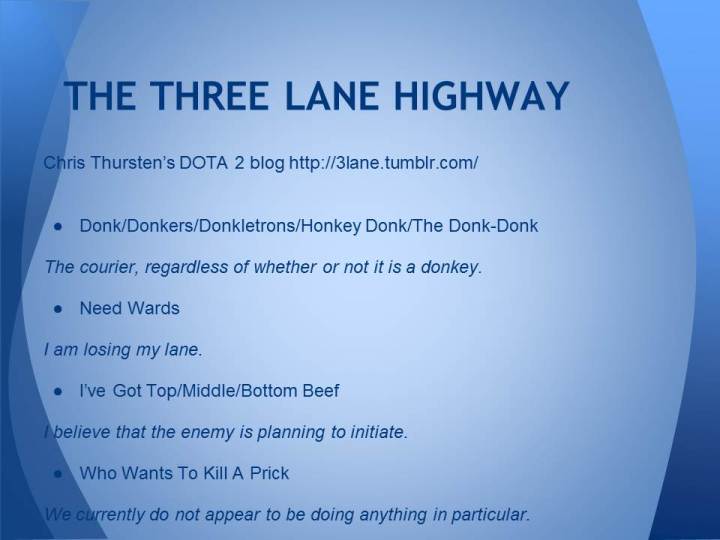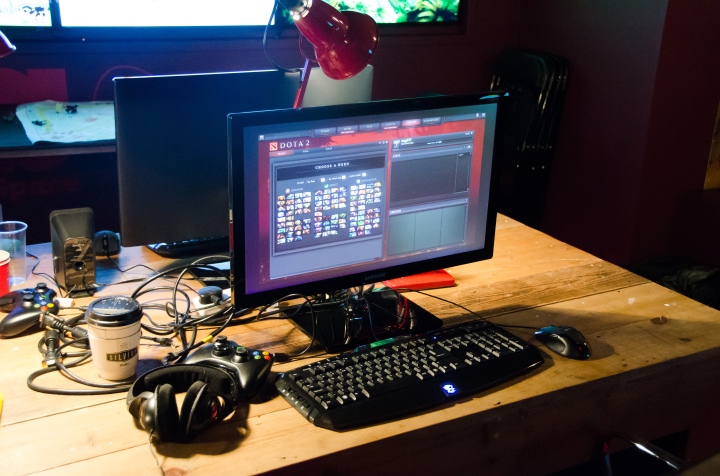For my conclusion in a series of articles asking MOBA games: why so serious?, I signed up to attend the ‘How to DOTA tournament’ event at the Virgin Media Game Space in London led by veteran video game critic Cara Ellison.
I began this series by asking the gaming community to tell us about their first experiences of playing MOBA games and share their thoughts about why they’re taken so seriously by the average player. Looking at how much prize money is awarded to the champions of professional leagues, it’s clear why the competition is so fierce but I wanted to know what exactly makes these games induce so much anger in just the public matches.
Until the Dota 2 workshop I’d never played a MOBA, although I had a good understanding about what’s involved and the core gameplay mechanics. The event was designed to help new players understand the basics of the free-to-play game and the six other gamers who joined me were a mixture of those that had never played before and some with a bit of experience. Ellison began the workshop by presenting us with her beautiful drawing of the game’s map which, although comical, did the job perfectly.

Before getting stuck into Dota 2 we were treated to an entertaining presentation, opening with the best piece of advice new players should remember: accept that you are a failure. With that guidance firmly etched into our minds Ellison moved on to explain that the game is extremely complicated and learning comes from dying a lot, but overall it’s a crazy amount of fun. An important point that was made is to communicate constantly with your team; this is just as important when picking your heroes as it is when playing. The best experiences come from playing with friends even if you’re losing, which is an important point in understanding why rage is so rife in public matches.
My first match with human players then took place, when we teamed up against the bots to help us get used to the game before playing against each other. It’s been a while since I’ve enjoyed an online multiplayer so much and all the other players were good sports even though I was getting killed repeatedly by the same guy. I was able to learn the mechanics much quicker with other gamers in the same room than I ever could with the tutorial.

For the rest of the day we continued to play against each other in teams to try out the different heroes and learn the extensive tactics that make up Dota 2‘s gameplay. It wasn’t long before I began to feel confidence in going home to play online, something I wasn’t able to do when I first downloaded the game and which prompted me to start this series of articles.
We’ve heard from two MOBA gamers and posted their stories in the form of profiles, both demonstrating the importance of being taught how to play in a one-to-one fashion. League of Legends player Pacific Kyrie told of her experience playing matches with her boyfriend, and finding her motivation to play better after receiving unpleasant remarks from him whenever their team were losing. She then went onto becoming a member of a all-girl professional sponsored team playing in the Garena Premier League.

Dota 2 player Exi was also taught how to play with a friend’s guidance which seems to be a common trend emerging in my discussions with MOBA players. After my day at the workshop I was eager to get home and start online; I already had an idea about which heroes to play as and amazingly my first four matches ended in a wins.
So why do gamers take MOBAs so seriously? It’s all about who you are playing with: those who have a solid group of friends playing together will get an awesome experience, it doesn’t matter if you’re winning or losing. I’ve had a fun time winning online but after dying repeatedly and having to wait seventy-five seconds to get back in game I can see why it can get more than annoying. The exception is when playing together as a team in a competition, where anger and abuse is often the norm and an accepted way of demoralising your opponent.
A massive thank you to the Virgin Media Game Space and Cara Ellison for providing an awesome day playing and learning Dota 2. I probably would never have gone back to it otherwise.


Great series of articles. Makes me wish I had the right group of friends to get involved and play what’s undoubtedly a cracking game. That said, I simply cannot bring myself to be a part of, or condone a community who’s default setting is abusive.
Manners cost nothing.
Indeed, another issue with not playing in a group with friends is that the matchmaking system usually places you with non-English speaking people making it difficulty to communicate!
Luckily I’m bilingual, fluent in English and Brummie.